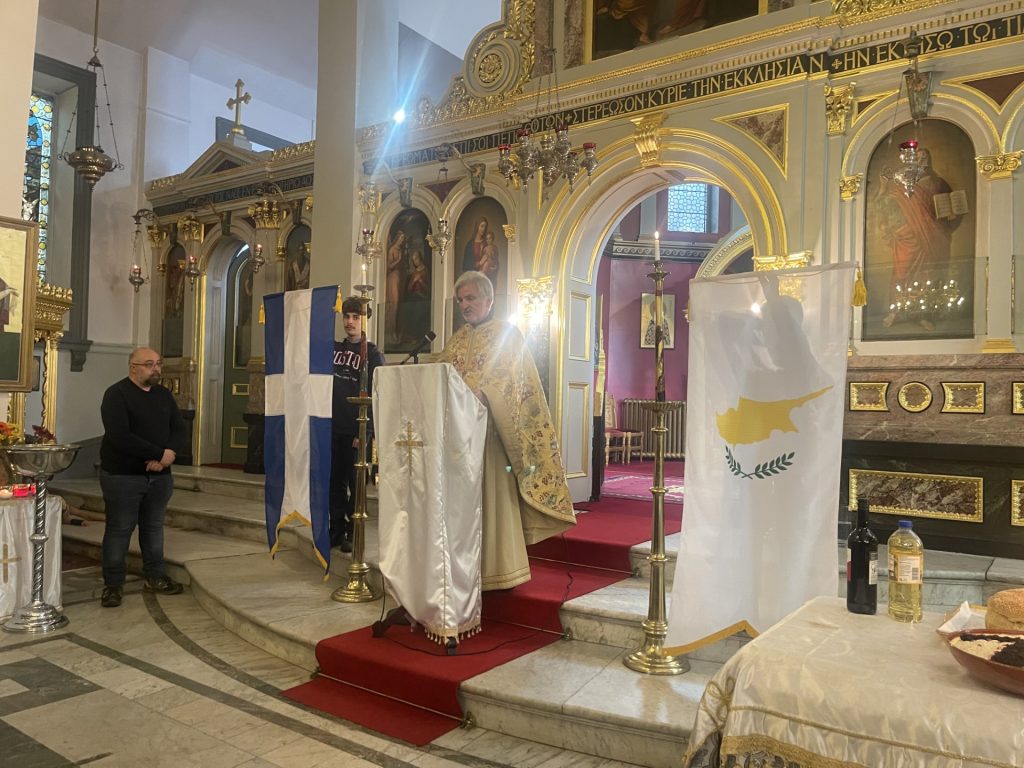
Salford’s Greek community celebrated the annual Oxi day this weekend, with a church service, stories, food and song.
The celebration, at the Greek Orthodox Church of the Annunciation on Bury New Road, commemorates the Greco-Italian War and Greek resistance during the Axis occupation.
Reverend Presbyter Demetrios Kontelides conducted a service and afterwards personal stories were shared about family members who fought in the conflict between Italy and Greece in 1940.
The service ended with everyone in the Church singing the Greek national anthem and songs from the era that were sung to keep up morale.
Residents of Salford from the city’s Greek community shared their views on the importance of Oxi Day.
Maritsa Antoniades, 54, highlighted the importance of Oxi day: “It is a day of reflection that reminds us of courage, bravery, resistance and liberty. It is about standing up for what is right.
“I also think it is more relevant than ever with the current situation in the Ukraine and what is also happening in the Middle East.”
Chrystalla Andreas, 52, said: “The Greeks are very good at commemorating important dates and they are embedded in you as a child from your parents and Greek school.”
“As a child you don’t understand what it stands for, it’s only when you are older is when you understand the importance of it.
“It is very similar to Poppy Day. It the equivalent of Remembrance Day.However we celebrate the people who stood up instead of remembering who had died.”
After the service concluded, outside of the church there was chicken souvlaki served to the members of the community to carry on the celebration of Oxi day.
Oxi day commemorates the day that the Greek Prime Minister, Ioannis Metaxas, refused the ultimatum issued by the Italian ruler at the time, Benito Mussolini.
As a result of Greece’s strategic location, whomever takes the country can dominate the Mediterranean Sea and the surrounding territory.

The Axis aimed to establish a presence in Greece to aid the group’s broader war plan during WWII.
Mussolini issued an ultimatum to Greece, telling them that if they did not allow the Axis to seize certain sections of Greece, it would be considered an act of war.
Metaxas stood up to the Axis powers and refused them admittance into Greece without a struggle. Metaxas responded to the group by declaring, “Alors, c’est la guerre,” which translates to “Then it is war.” Despite the fact that Metaxas’ response was translated as “No” or “Oxi” in Greek,
This propelled Greece into conflict with Italy and, ultimately, into World conflict II. Although we know that Metaxas’ conduct pushed Greece into war, the Greek people mainly supported it and regarded it as an act of valor.














One Comment